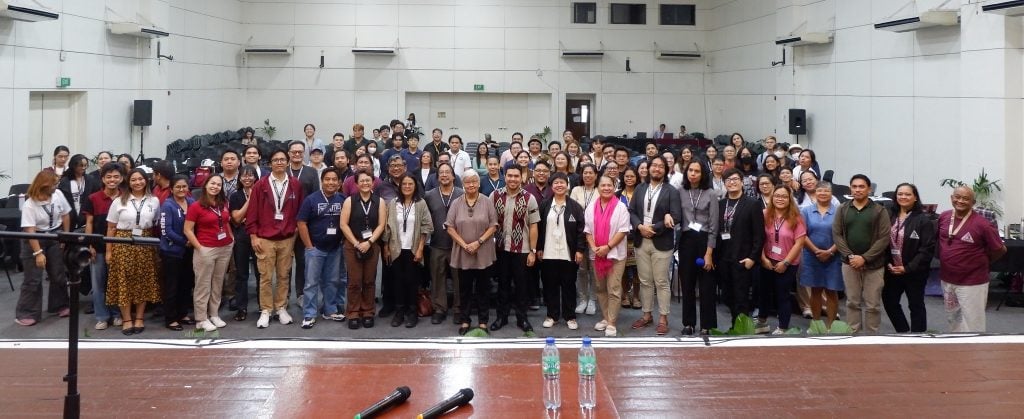
Over 200 participants and 40 distinguished speakers gathered at the GT Toyota Auditorium at the Asian Center, University of the Philippines(UP) Diliman on Tuesday, December 4, 2024, to hold the historic 1st Academic Freedom and Human Rights Conference to discuss urgent threats to academic freedom and human rights in the country’s different education institutions.
Organized by the UP Office of the Faculty Regent, All U.P. Academic Employees Union, Congress of Teachers/Educators for Nationalism and Democracy (CONTEND), the Network in Defense of Historical Truth and Academic Freedom, and the Defend UP Network, the conference highlighted the urgent need to protect academic institutions from threats to intellectual independence and progressive politics. It also coincided with CONTEND’s 5th Pingkian Conference, reinforcing a shared commitment to advancing critical thought and social justice.
Participants and speakers tackled pressing issues such as red-tagging and terror-tagging, which have increasingly targeted students, faculty, and staff engaged in socio-civic advocacy and critical work. The phenomenon has become prevalent not only in UP but also in other academic institutions with outspoken community members in their critique of state policies and positions.
Concerns were also raised about the corporatization and commercialization of state universities, which jeopardize their public service mandate. For instance, the replacement of community institutions like the UP Shopping Center with commercial developments catering to big businesses underscores the creeping influence of corporate interests in education.
Participants and speakers have also pointed to institutional agreements such as the UP-Armed Forces of the Philippines Declaration of Cooperation as attempts to stifle dissenting opinion and further compromise the independence of scholars, students, and university staff.
In a joint statement, conference participants underscored the systemic challenges confronting academic freedom: “(a)s education becomes more commodified, schools and universities are targeted by efforts to silence dissent, suppress critical thought, and stifle resistance to systemic injustices. Red-tagging, censorship, harassment, and the criminalization of academic and civic engagement are assaults on the integrity of education itself.”
To address these issues, they called for the creation of Committees on the Protection of Academic Freedom and Human Rights across educational institutions in the Philippines. These committees would defend academic freedom against harassment, red-tagging, and repression; provide institutional support for educators, students, and staff facing threats; promote dialogue on the importance of academic freedom and human rights; and advocate for progressive policies to institutionalize these protections.
The conference reaffirmed the commitment of the academic community to resist the erosion of freedoms and to uphold progressive education and critical thinking as cornerstones of a democratic society. Participants pledged to continue engaging their peers in the fight for academic freedom, ensuring that universities remain bastions of critical thinking and progressive values, and sites of protection for human rights defenders.
